News | Podcasts | Articles

Fear vs. F.E.A.R.
So, the lesson here is to examine your fears – discern between the necessary caution and the self-imposed limitations. In facing these fears, we might uncover something precious we thought was lost or even discover something new.

Do You *NEED* a YouTube Channel?
What if YouTube could make a real difference in your career as a composer? This podcast episode provides an in-depth analysis of how to leverage YouTube for your career growth. Learn about digital sharecropping, cross-promotion tactics, and more!

Kitschy Jazz Cue Review
Join me as I give critique and feedback on a kitschy jazz cue by 52 Cues Community member, Brian Morales.

You Should Learn Guitar | with Guest Mike Meiers
As production music composers, we often find ourselves reaching for virtual instruments first, but we also know that recording live instruments can bring magic to a cue!
On today's episode, I welcome Emmy Award-winning composer, songwriter, guitarist, and host of the Songwriting for Guitar Podcast, Mike Meiers, to talk about how he uses real instruments on his tracks, and how we shouldn't be afraid to pick up a guitar – even if we don't really know what we're doing!
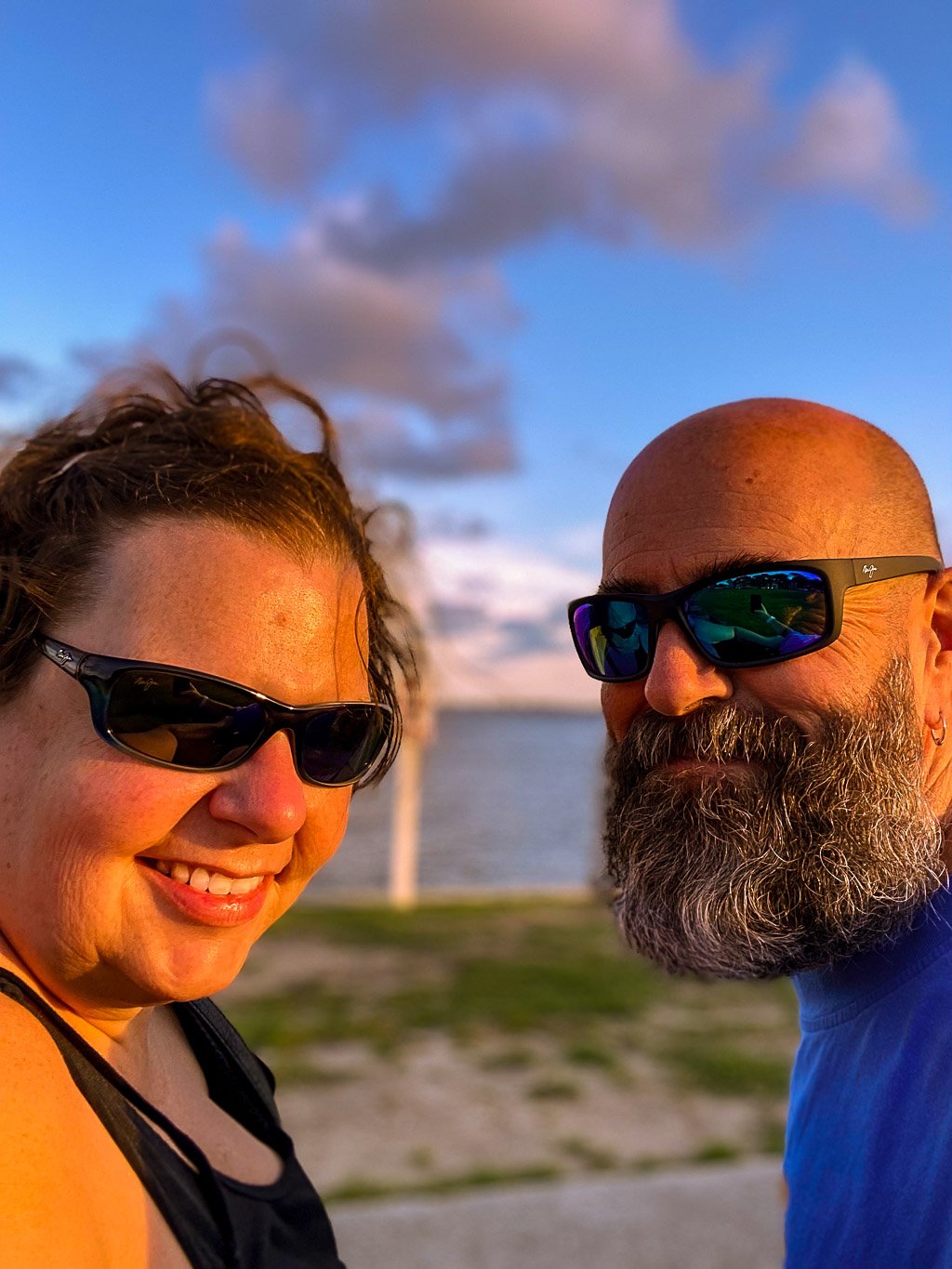
Unplugging
There's no one-size-fits-all approach to self-care, and that's perfectly fine. Recharging will energize you and enable you to be there for your family, friends, work, or anything that requires your attention.

Who Writes Those Plugin Demos?
One of my favorite things to do whenever any new synth, sample set, or patch library comes out is to take a listen to the demos, but who actually puts these demos together, and how do you land that gig?
Well, we are super fortunate to have a very accomplished demo writer right here in the community, and I’m thrilled to welcome Michal Sinay to this week’s episode of the 52 Cues Podcast.

The “Someday” Trap: Let’s Live Now
Hope is what keeps us going, day after day. We hope that tomorrow will be better than today. And there's something beautifully creative about hope, isn't there? As creators by nature, we constantly seek improvement, forever dreaming of a brighter future, and hope is our companion on the journey.
But is there a catch?
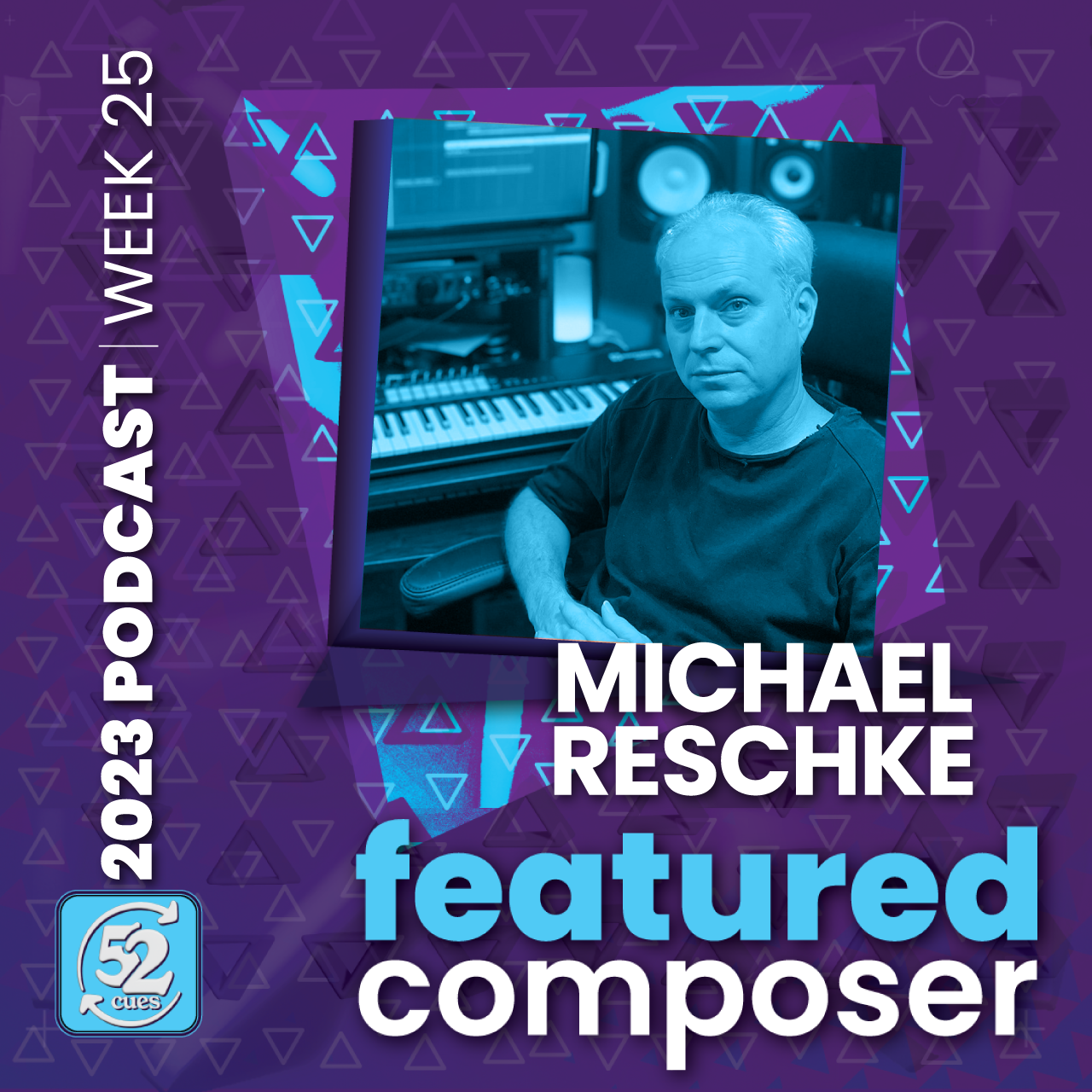
Featured Composer: Michael Reschke
Michael Reschke is a producer who has been a drummer for over 40 years, and a drum and percussion educator for 16 years.
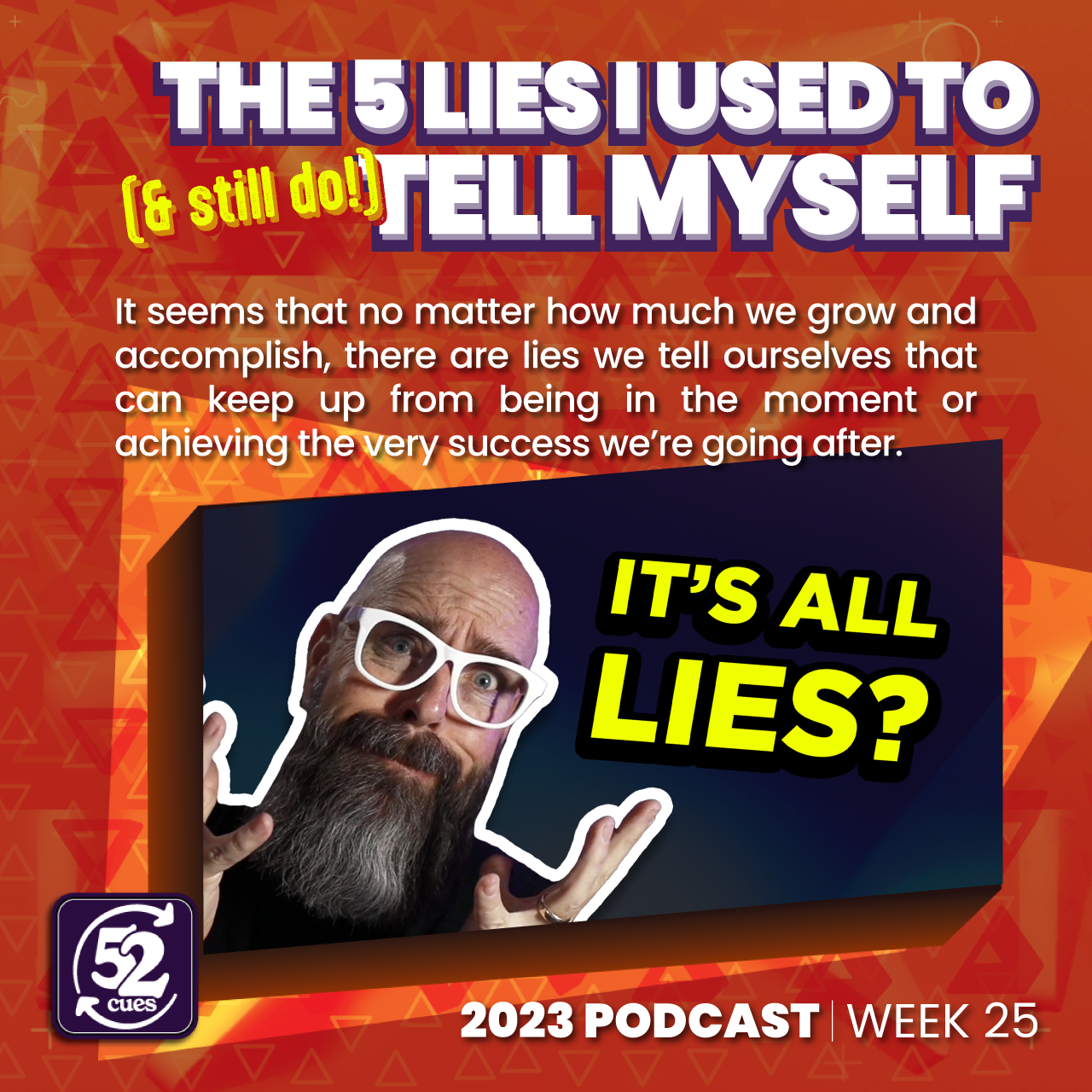
The 5 Lies I Used to (and Still Do) Tell Myself
In the absence of facts, it’s human nature to substitute fears in place of truth, and it seems that no matter how much we grow up and how much we accomplish there are lies we tell ourselves that can keep up from being in the moment or achieving the very success we’re going after.

Life-Giving Goals
Let’s be real: we all have commitments and deadlines that we need to meet. We all have to do stuff we don’t absolutely love, and there are occasions where the SMART-style goal is a fantastic tool to use. But when the majority of our most important goals are life-giving and centered around real-life desires and visions, real progress and real transformations happen.

Featured Composer: Omar Blyde
This track is from Blyde’s album “Orchestral Fantasy.” Have a listen to the track and check out Dave’s feedback!

Left vs Right Brain Thinking for Composers
Our cognitive processes are generally divided into the two hemispheres of our brain. The “left brain” is analytical and logical. The “right brain” houses imagination and intuition. Let’s explore the intersection of neuroscience and composition!

Featured Composer: Jerome Detotto
A lifelong music lover and musician, Jerome performed in nightclubs with rock cover bands in the 1980s. Though he no longer performs live, he continues to write and record music in his home studio. Jerodet Music was created to market his original compositions to the TV and film industry. His music ranges from quirky pop to EDM to orchestral/synth hybrid, and much in between.
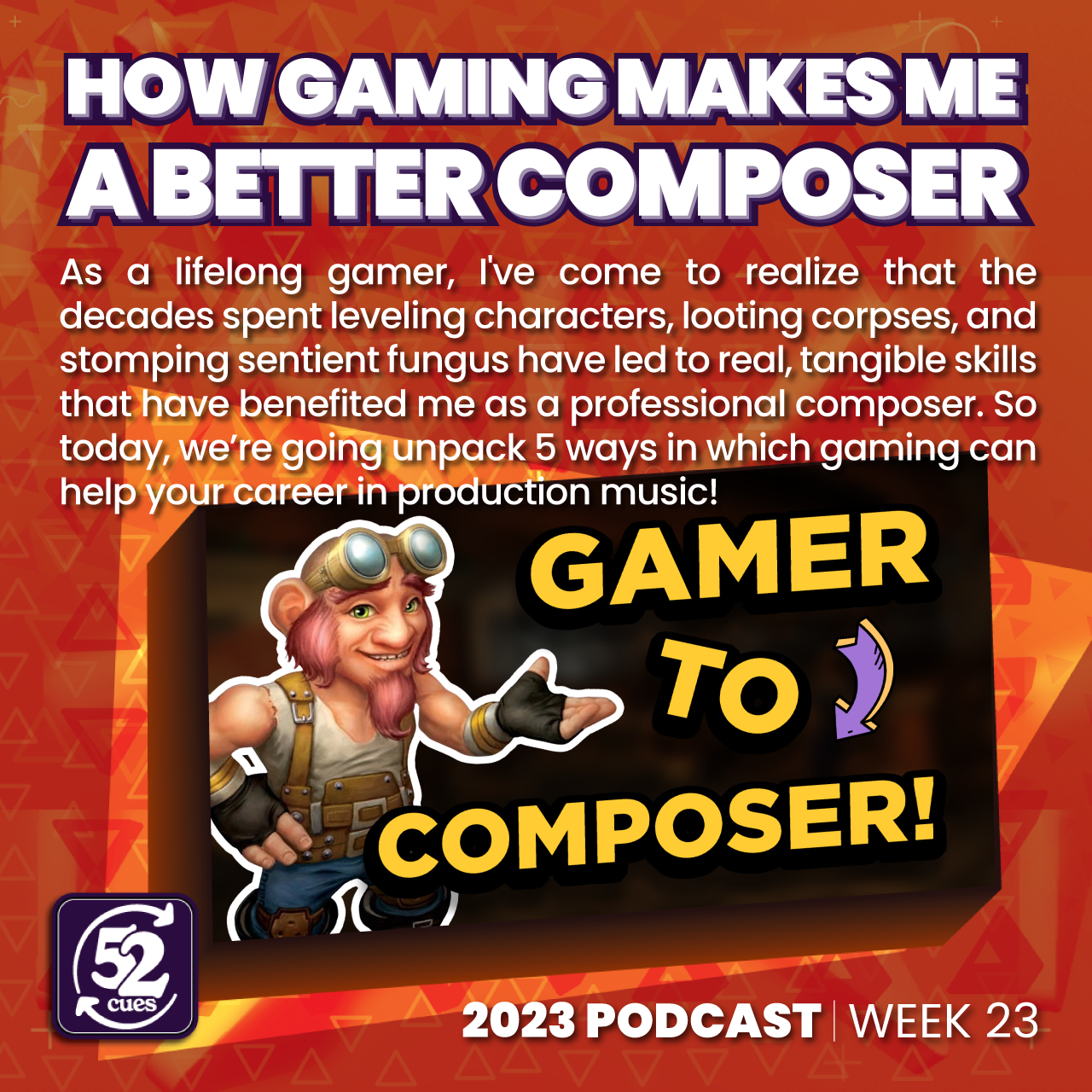
How Gaming Makes Me a Better Composer
As a lifelong gamer, I've come to realize that the decades spent leveling characters, looting corpses, and stomping sentient fungus have led to real, tangible skills that have benefited me as a professional composer.
So today, we’re going unpack 5 ways in which gaming can help your career in production music!

Coping with Crisis Mode
Crisis Mode goes into effect when unexpected events—like a family emergency or an intense work period—demand immediate attention, forcing everything else to fall away. These are the moments when our bodies are on constant high-alert, fueled by adrenaline and anxiety.
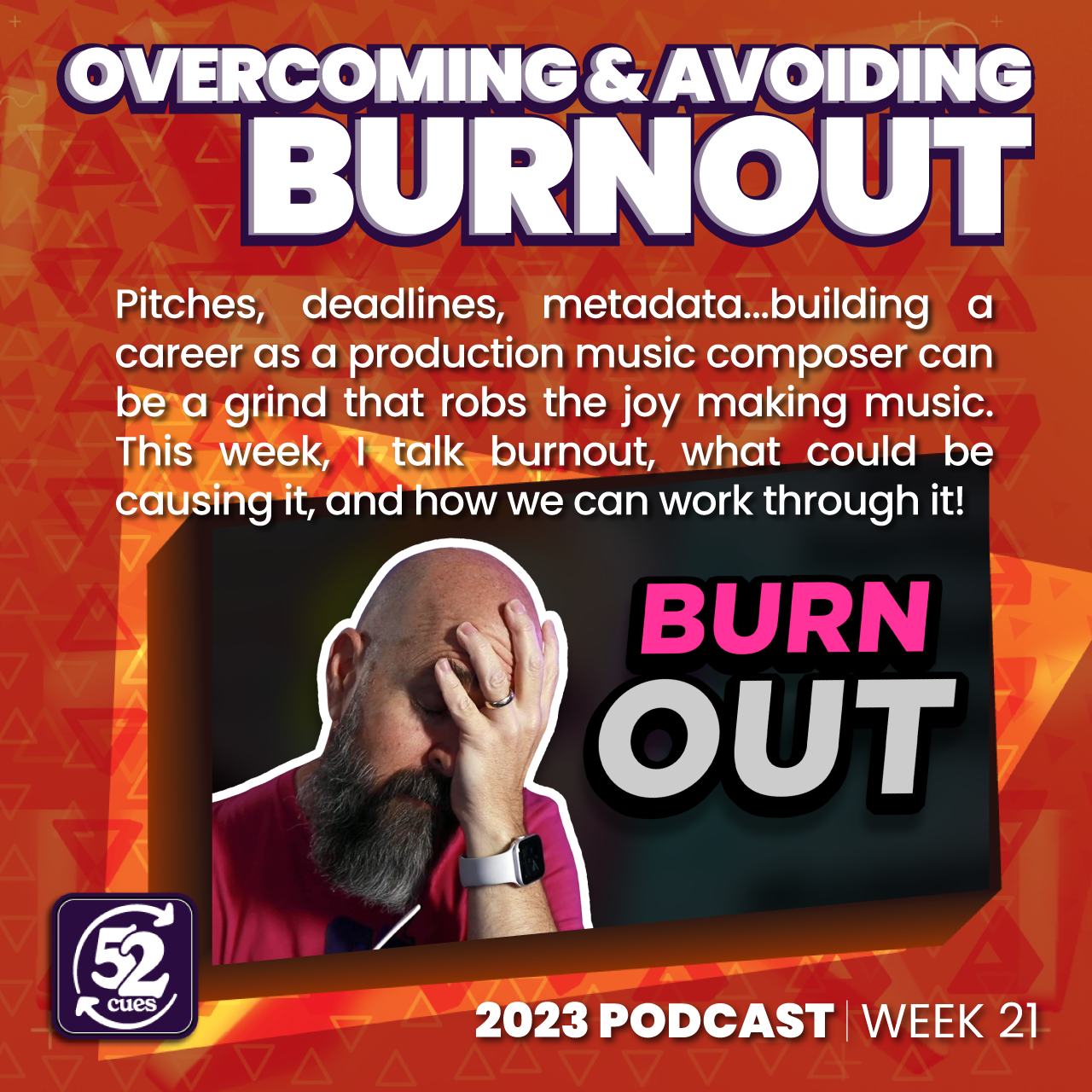
Overcoming and Avoiding Burnout
Dave Kropf discusses avoiding burnout in music composition, coping with burnout when it happens, plus self-care and wellness strategies. Learn to deal with strict clients, the repetitive nature of production music, competition, rejection, and more.
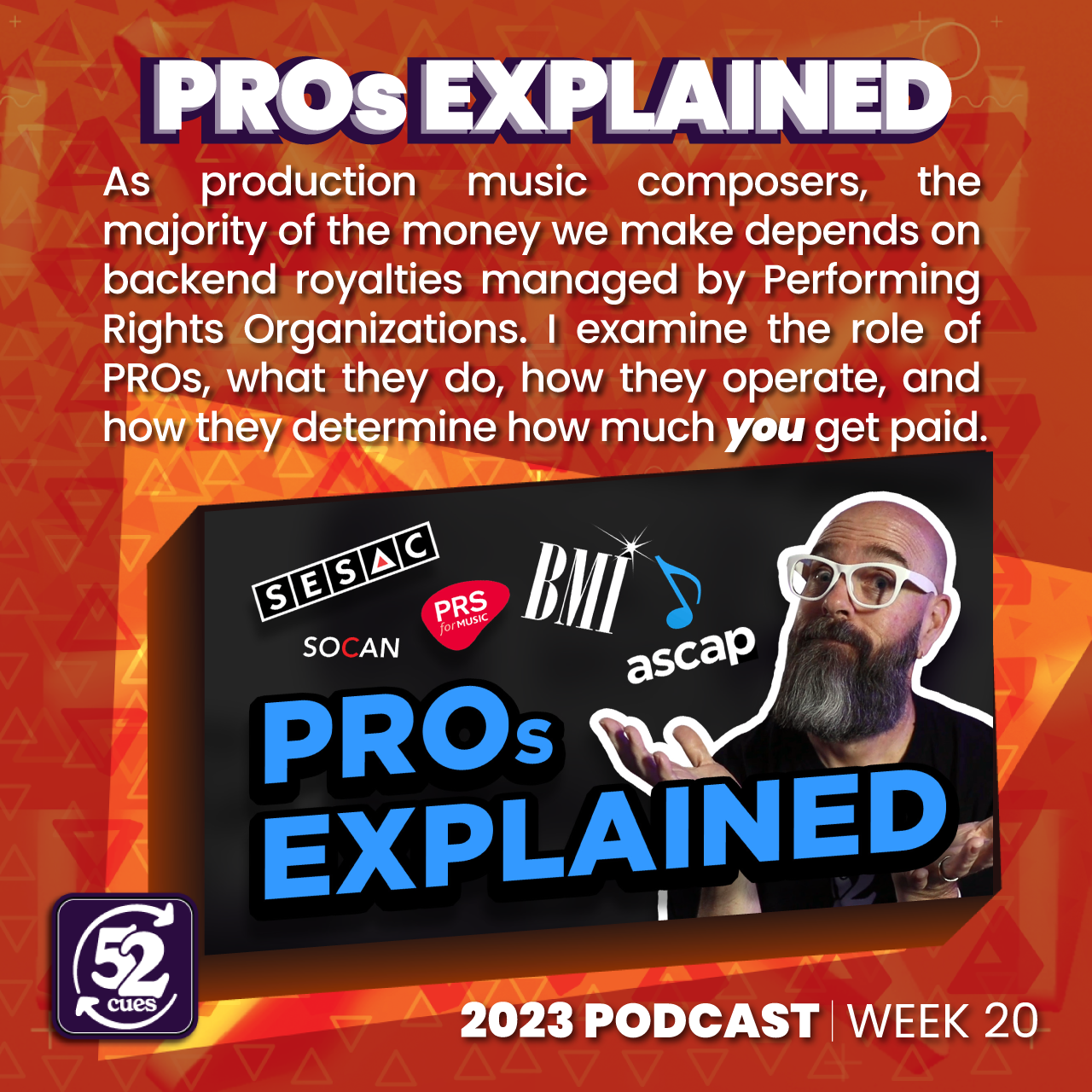
PROs Explained
There are a lot of moving parts to getting paid when your music gets placed on TV and as production music composers, the majority of the money we make depends on backend royalties managed by PROs or Performing Rights Organizations.
So on today's episode, I examine the role of PROs, what they do, how they operate, and how they determine how much you get paid.
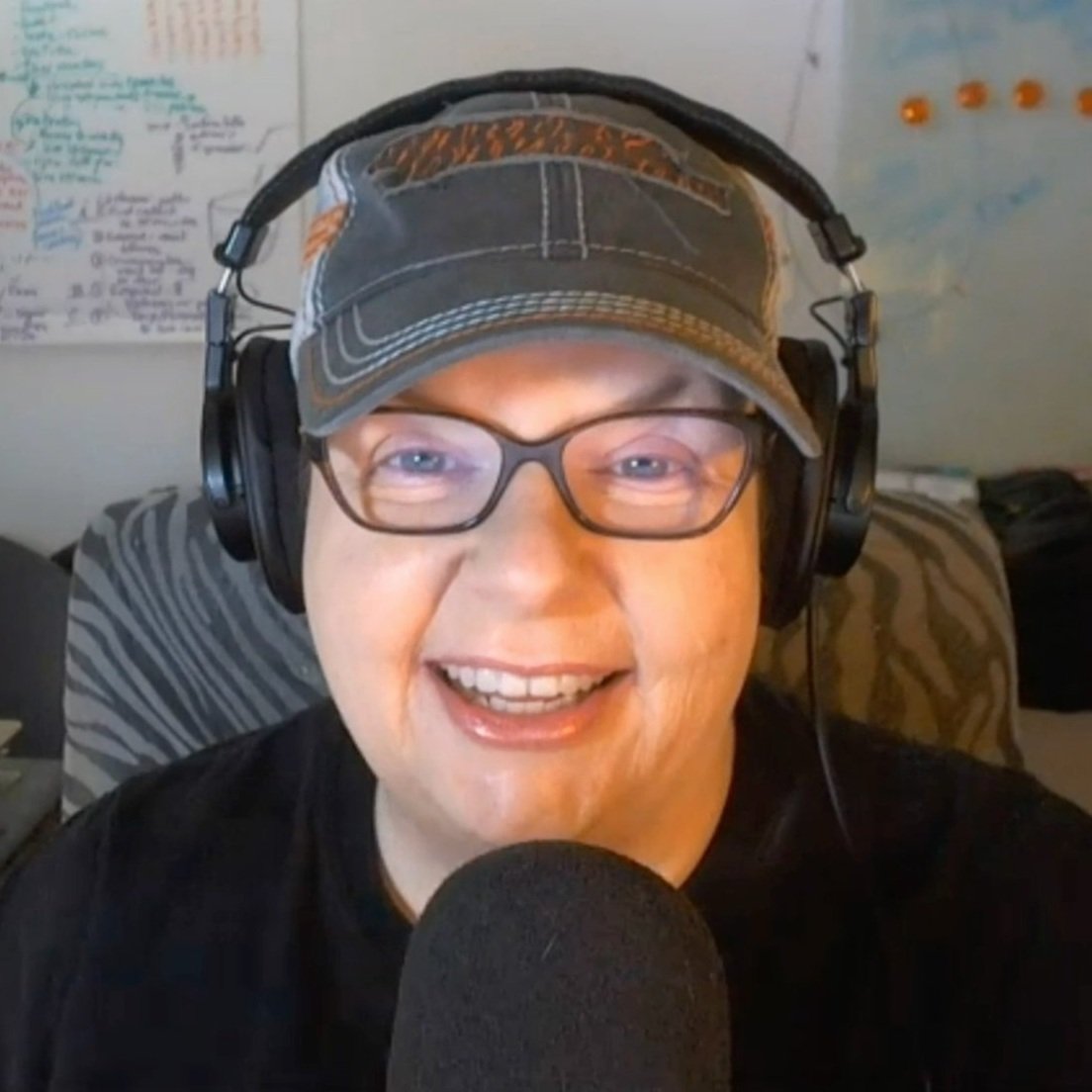
The Other Three Agreements
The author, Don Miguel Ruiz, explains that we make “agreements” (or ways of being) with ourselves and others based on what we've learned throughout our lives. These agreements can either uplift us or hold us back. And the four agreements mentioned in the book are practical and powerful.

Featured Placement: “Course Record with Michael Breed”
52 Cues Family member Jesse Carrigan got broadcast time on CBS Sports Course Record with Michael Breed!
Jesse is a Bend, Oregon-based producer, songwriter, and singer whose work focuses on rock genres. His unique, smooth tenor both stands out from the crowd and draws comparisons to legends like Aaron Neville and Philip Bailey (Earth, Wind and Fire). Jesse's varied musical background and multi-instrumental talents enable him to go wherever the song leads.
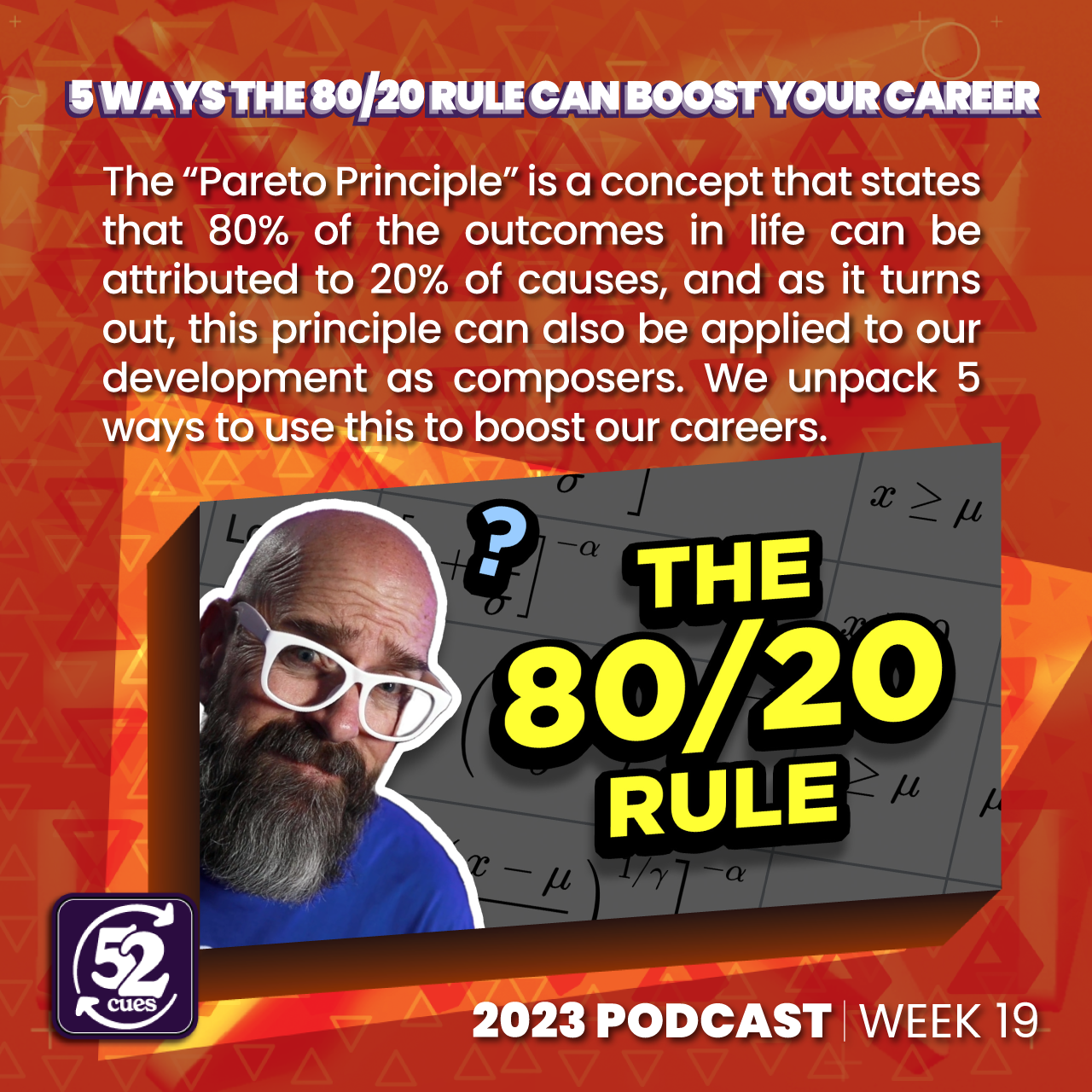
5 Ways the 80/20 Rule Can Boost Your Career in Production Music
The 80/20 rule, or “Pareto Principle,” is a concept that states that 80% of the outcomes in life can be attributed to 20% of causes, and as it turns out, this principle can also be applied to our development as composers.
On this week’s episode, we unpack 5 ways to use this 80/20 rule to boost our careers in production music, as well as talk about some pitfalls to watch out for if this all goes sideways.

